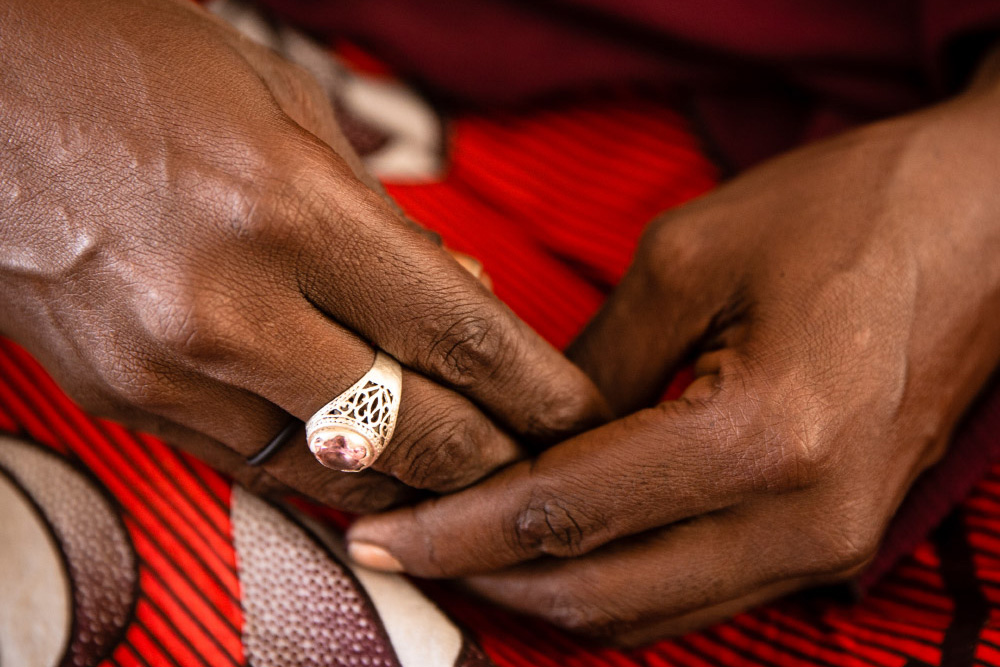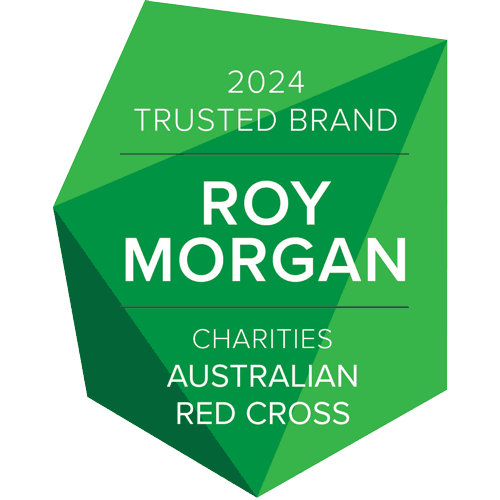The day my life changed forever
A former journalist who escaped danger in Africa and sought safety in Australia shares her story to help others understand what drives people to seek asylum.

I used to be a journalist and advocate in Africa. But I can’t tell you my name or even the country I come from. My family still live there, and it could put them in danger.
Fearing for my life, I left behind my homeland, family, friends and career to seek safety in Australia. Now, I'm sharing my story. I want people to hear my voice, know the things that can happen and think about what might drive someone to seek protection on the other side of the world.
I work with Australian Red Cross sharing my experiences with school students. The program I'm part of, called In Search of Safety, gives students and other groups a chance to hear from people who’ve fled danger, conflict or persecution and what it means to them to now live in Australia.
Back home, I worked for a newspaper. We wrote about my country’s problems – a failing education and health system, corruption and suffering. The paper was popular with people who were poor, but the government considered it the voice of the opposition. Once, our office was bombed, and the paper closed.
For a while, I worked for an NGO advocating for human rights and, later, an organisation fighting for better pay and conditions for workers.
But then, one day, something happened that changed my life forever.
I was waiting at a bus station for a ride home. A car pulled up, and I got in, thinking it was my lift. But there were men in the car I didn’t know. They started interrogating me, wanting a list of my organisation’s members, to know where we got funding and who was helping us.
When I told them I didn’t know anything, they started hitting me in the head. As they drove across the city, they kept beating me before finally throwing me out onto a road near a cemetery.
I managed to get home but was too afraid to go to the police. In my country, things don’t work like they do here, and reporting the attack could make the situation worse.
Around this time, I had a holiday planned to visit relatives in Australia. Authorities at the airport questioned me – where was I going and who was paying for the trip – but eventually let me on the plane.
While I was away, I heard the news that a female activist I knew had been thrown in jail and was later murdered. Then my parents told me someone had come to their house looking for me, warning them I should stop my work or I could face the same fate.
I knew returning home wasn’t safe, and I applied to the Australian government for a protection visa.
When I share my story, students ask lots of questions: What was my childhood like? Did I go to school? What games did I play? What food did I eat? They want to know if I have friends in Australia and what I do in my spare time.
Sometimes, they ask questions that are too hard and painful to answer – about the attack and the woman who was killed.
Storytelling is my chance to do something meaningful and feel connected to the community. I remember Red Cross back home, teaching people how to protect themselves from disease, HIV and AIDS. Red Cross helps people in need; it alleviates hardships. And that's what I've tried to do in my life.
I’m grateful and happy to be in Australia. I’m lucky my relatives were there to support me in the beginning. Although I haven’t been able to find a job as a journalist, I do work. I have a job in disability and care alongside my part-time role with Australian Red Cross. I have a place to live where there is water and electricity. My health has improved, too, because there’s better medical care.
People at work and church have been welcoming. I’m making new friends and enjoying the simple things – I love going to the mall. And, most of all, I am safe. It feels good to not look over my shoulder in fear.
But some days, I can’t read the news from home. I feel stressed and helpless. I worry about my family. And I worry about the female activists in my country fighting for people’s rights and facing the threat of jail, abuse, or something unspeakably worse.
Every day, persecution, conflict, disaster and other serious events force more people to flee their homes.
The UNHCR says over 110 million people had been forcibly displaced globally as of the end of June 2023. That equals more than 1 in every 73 people worldwide; this is one of the biggest humanitarian crises of our time.
Through the In Search of Safety program, Australian Red Cross offers schools, community groups and workplaces a chance to talk about the issues they hear about in the news. Because there are many misunderstandings about refugees and people seeking asylum.
Like everything we do, the program is neutral and impartial. It provides a space for people to ask questions, encourages conversations, and fosters understanding and empathy. Each session combines facts with stories shared by people who have experienced firsthand what it's like to be forced to flee.
Charity donations of $2 or more to Australian Red Cross may be tax deductible in Australia. Site protected by Google Invisible reCAPTCHA. © Australian Red Cross 2025. ABN 50 169 561 394
